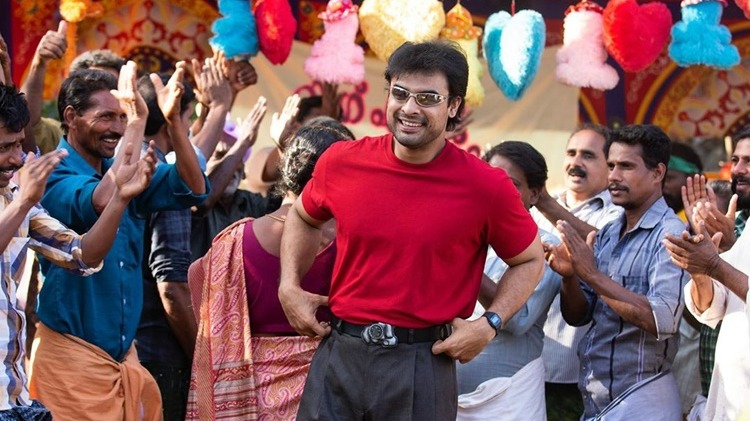No Marakkar, Kurup or Hridayam: What does another Onam without theatrical releases mean for Mollywood?
With Kerala theatres unlikely to reopen during the festive season, for the second year running, OTTplay takes a look at the impact it will have on the Malayalam film industry

Last Updated: 08.50 PM, Aug 12, 2021
The reopening of Kerala theatres earlier this year provided a ray of hope for many film exhibitors, who had been waiting for almost 10 months to throw open the doors of cinema halls for the audience. The theatrical release announcements of big films such as Mohanlal’s Marakkar: Arabikadalinte Simham, Fahadh Faasil’s Malik and Nivin Pauly’s Thuramukham – all of which were set to hit cinema halls on Eid on May 13 – gave these hopes a shot in the arm, but it was short-lived due to the second wave of the pandemic. With positive COVID-19 cases crossing 23,000 on Wednesday, it is likely that theatres in Kerala would remain shut during this year’s Onam too. But what does that mean for the Malayalam film industry?
Traditionally, producers, distributors and film exhibitors ensure that several big Malayalam films are lined up to release in theatres during the Onam season. Producer and theatre owner Visakh Subramaniam, who had planned to release Vineeth Sreenivasan’s Hridayam last Onam, tells us, “It’s also the time when you have 100% occupancy; it starts from the evening of Thiruvonam day till the Onam holidays end. Even an average film will command a decent collection during Onam. So, it is a great time for producers, distributors and exhibitors because after the Onam season, October and November are usually dull and business picks up only in December.”

‘About 20,000 workers in the sector will be adversely affected’
With cinema halls in Kerala now being shut since April, the losses sustained by the theatre owners have come as a huge blow to Mollywood. “It’s as if the last hope for the industry is being snuffed out,” says producer, distributor and filmmaker B Unnikrishnan, whose Mohanlal-starrer Aaraattu was initially set for an Onam release this year. “About 70 per cent of the exhibitors, who are being pressured by the banks to pay off loans they took to renovate or run the theatres, are going through turbulent times. Without Onam releases, it just becomes tougher for about 20,000 workers involved in the sector.”
Concurring with Unnikrishnan, Kerala Film Producers Association official G Suresh Kumar tells us, “There’s still uncertainty on when theatres would reopen. For all sectors including MSME, the government has announced moratorium on loans but there have been no such relief measures for the entertainment industry in the State.”
MC Bobby, from Film Exhibitors United Organisation of Kerala, echoes the same sentiment as he says “the wheels of the industry are hardly turning”. “Though the government is not collecting entertainment tax and GST, they still want us to pay tax to the Film Development Corporation, the Chalachitra Academy, the building taxes and electricity charges. We have shut theatres because the government has instructed us to but they are hardly doing us any favours by asking us to pay when we don’t have revenue,” he says.
Producers backing big films bear the brunt of pandemic
With close to 60 Malayalam films awaiting release, producers are incurring losses by way of interests with theatres yet to reopen. Producers, who have backed films such as Kurup, Marakkar and Aaraattu, which are made on budgets exceeding what even OTTs are willing to offer Malayalam movies, are currently in a fix as the only viable option to make some sort of profit is through a theatrical release. Many who sold their films’ rights to OTTs also did it to cut their losses, says Suresh Kumar.
Unnikrishnan, who has co-produced Aaraattu, says, “I am sitting on a Rs 39Cr film and paying interest of almost Rs 20 lakh every month. As a theatre owner, I am paying another Rs 10 lakh, so that’s Rs 3.6Cr a year as interest. Investments in the industry work based on a few calculations and we expect the turnaround time to be about 90 days. That’s hardly the case now, so the industry is in dire straits.”
Point out how neighbouring industries such as Telugu have started working on projects that have budgets of over Rs 300 Cr and the filmmaker, who had earlier helmed Kodathi Samaksham Balan Vakeel for Viacom18 Studios, says, “The cinemas there will open to 100 per cent capacity soon. Also, the budget of two projects of Viacom18 touches Rs 1,200 Cr. They are planning to recover this in the next 2-3 years because the margins are that high. But in Malayalam, we are seeking returns within the next three months. So, that’s why there’s a high chance of revenues totally drying up in theatres and leading to a bigger crisis.”
Film trade analyst Sreedhar Pillai shares the same opinion. “In 2019, Malayalam film industry was doing extremely well and it would have been one of the major players in India,” he says. “Malayalam cinema was also becoming popular outside the State with multiplexes in metro cities playing at least one show of a major Malayalam movie. So, the theatres remaining closed during the festive season, when the producers earn an additional 10 per cent income, has dealt a major blow to the Malayalam theatrical industry.”
Some of the big films were also planned considering Malayalam movies’ demand in overseas market such as the Middle East, the US, the UK and Australia. Unnikrishnan explains, “The problem with releasing big films like Marakkar and Aaraattu is that we also have to account for what happens globally and not just in Kerala. Right now, we haven’t looked for any other alternative than to release in theatres, but once driven against the walls, there’s a limit to which we can hold on to the movies.”

OTTs give Malayalam cinema a boost
However, it’s not all gloom and doom for the Malayalam film industry, which has always been quick to adapt to change through the merit of its content. Pillai, who tracks entertainment industry trends, says, “If you look at OTTs, Malayalam cinema’s footprints are bigger and the reach has increased leaps and bounds during the two waves of COVID-19. In India, Malayalam is now second only to Hindi in terms of following on OTTs.”
He also substantiates this with the presence of all major OTT players such as Amazon, Netflix and Disney+ Hotstar in Kerala. “They wouldn’t come here if the market was small. Also, there are so many regional OTT players in Kerala that are releasing smaller films. So, it’s a blessing in disguise. If theatricals have gone down, OTTs have increased and multiplied the audiences for Malayalam content,” he says.
Producer Vijay Babu, whose Sufiyum Sujatayum was the first Malayalam film to release directly on OTT, explains that streaming platforms have also helped reduce the financial pressure. “Leading producers like Anto Joseph and Antony Perumbavoor, who had a lot of money stuck on their projects such as Malik and Marakkar, respectively, got some relief by releasing their movies Drishyam 2, Irul and Cold Case on OTTs,” he says.
While his decision to release Sufiyum Sujatayum on Amazon Prime Video was met with disapproval by producers’ and exhibitors’ associations last year, the members have now realised the undue stress of holding on to films, given the pandemic and the uncertainty, as is evident from their current permissive stance on OTT releases.
Vijay says, “We can’t hold on to a movie forever as a producer. When I released Sufiyum Sujatayum on OTTs last year, people asked me why I was in a hurry to release it in streaming platforms rather than wait for theatres to reopen. Apart from people being deprived of entertainment content, there was also others dependent on us. So, it was also about liquidating what we have and giving jobs to 50-60 people by producing another film.”
He further adds that he invested the money from Sufiyum Sujatayum’s OTT deal to produce #Home, which is set to release on Amazon Prime Video as an Onam release on August 19. “Forget Onam, if things were normal, I don’t think a small movie like #Home would have found space in theatres at all. It would probably have been a stop-gap movie,” he says, adding that OTTs allow filmmakers to focus on content.
Pillai also agrees that OTT is the best way for films right now, considering that even when theatres re-open in Kerala, they will operate at 50 per cent capacity for the better part of a year.
Also read: Kuruthi review: Prithviraj’s socio-political thriller is fuelled by stellar performances and writing
Pointing out the response of Prithviraj Sukumaran’s Kuruthi, which is billed as Amazon Prime Video’s Onam release, Pillai says, “If you look closely, a Malayalam theatrical release has never got this much talk online. Social media has exploded in terms of the kind of films being made in Malayalam and the kind of interest Fahadh Faasil has. Fahadh was never a theatrical superstar but he is now one of the biggest stars in India thanks to OTT.”
Makers still pin hopes on theatrical releases
While there are reports that Tovino Thomas’ big-budget superhero film Minnal Murali, which was initially set to hit theatres during last year’s Onam, has opted for a Netflix release in September due to the delay in reopening of theatres in Kerala, Visakh, who is backing Pranav Mohanlal-starrer Hridayam and Prakashan Parakatte, isn’t looking in that direction.

The producer, whose Love Action Drama had released in Onam 2019, says, “Hridayam has to be experienced on the big screen. It’s got 14 songs and is technically well made, and as a film-lover, I can’t imagine releasing it on OTTs. So, I haven’t started any discussions or negotiations with streaming platforms for the movie.”
But it’s not just big films that are waiting for theatres to reopen. The makers of Asif Ali’s Kunjeldho in June even announced a theatrical release date of August 27 and Unni Mukundan’s Meppadiyan too have prioritised a theatrical release.
Meppadiyan’s director Vishnu Mohan says, “We are willing to wait for another 2-3 months. We will look at other options only if the decision to reopen theatres is pushed indefinitely.”
While Unnikrishnan too has been pressing for theatrical release for Aaraattu, he is wary of the response of the audience. “I was fortunate to release Mammootty's The Priest in theatres when the first wave ebbed. The movie brought in limited profit, but that needn’t be the case after the second wave because the number of COVID-19 cases has been increasing,” he says.
Visakh, however, is optimistic. “When theatres re-opened, not a single cinema hall was shut because of a COVID-19 case. That’s because the theatre staff were extremely careful. They were aware that theatres were the last facilities to be permitted,” he says. “Also, when Vijay’s Master released, we witnessed people coming back in masses to the theatres. I believe if the second wave didn’t hit and theatres had all opened up, things would have been back to normal by now.”
Like rest of the film industry, Visakh too is betting big on releases such as Marakkar, Kurup, Aaraattu and Hridayam to draw the audience and fuel the industry once the restrictions are lifted. “All these films are of different genres and would appeal to different kinds of audience. If the makers of these movies opt for theatrical releases, within two months of reopening, we can definitely see huge crowds in front of the theatres,” Visakh concludes.
While the fanbase for Malayalam cinema has expanded exponentially since the pandemic, thanks to the movies that were released on OTTs, the film industry is still feeling the heat. The Kerala government’s stance of not reopening theatres, even at a reduced capacity, has further dented the hopes of thousands who depend on the industry for their livelihood. Producers and filmmakers also tell us that the OTT wave too only benefit the industry’s leading producer, actors and technicians, while the rest of the industry is still left holding the bag. However, many are hoping that the massive pan-Indian following for Malayalam cinema on OTTs would also translate to box office numbers when the theatres reopen.

 Premium
Premium